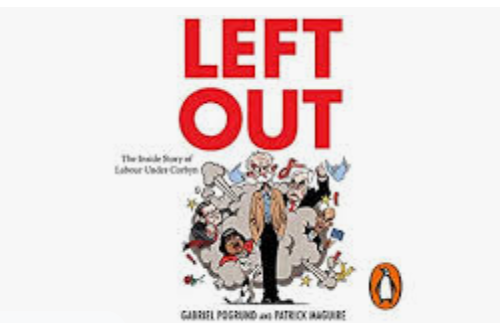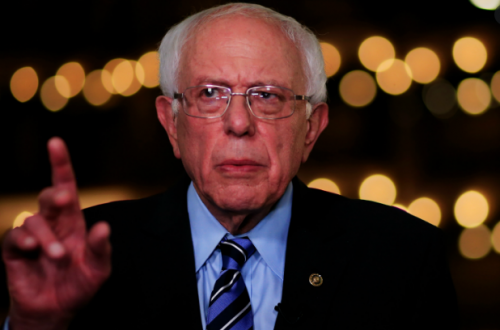Fascinating and broad-ranging interview with Christopher Hitchens in the conservative US publication Front Page.
The first part deals with Iraq, the war on terror – the left and the right.
On September 11 and his final break with the psuedo-left he says:
As to the “Left” I’ll say briefly why this was the finish for me. Here is American society, attacked under open skies in broad daylight by the most reactionary and vicious force in the contemporary world, a force which treats Afghans and Algerians and Egyptians far worse than it has yet been able to treat us. The vaunted CIA and FBI are asleep, at best. The working-class heroes move, without orders and at risk to their lives, to fill the moral and political vacuum. The moral idiots, meanwhile, like Falwell and Robertson and Rabbi Lapin, announce that this clerical aggression is a punishment for our secularism. And the governments of Pakistan and Saudi Arabia, hitherto considered allies on our “national security” calculus, prove to be the most friendly to the Taliban and Al Qaeda.
Here was a time for the Left to demand a top-to-bottom house-cleaning of the state and of our covert alliances, a full inquiry into the origins of the defeat, and a resolute declaration in favor of a fight to the end for secular and humanist values: a fight which would make friends of the democratic and secular forces in the Muslim world. And instead, the near-majority of “Left” intellectuals started sounding like Falwell, and bleating that the main problem was Bush’s legitimacy. So I don’t even muster a hollow laugh when this pathetic faction says that I, and not they, are in bed with the forces of reaction.
The second half covers the Israel-Palestine issue and is a challenge to those in the pro-democracy camp who take a largely uncritical approach to Israel’s behaviour.
Both are well worth reading in full.
The debate about Hitchens in the US seems to be about whether or not he can still be called a leftist. The anti-war liberals deride him as a turncoat while the right tentatively seeks to claim him.
Hitchens doesn’t appear to have much interest in belonging to either camp. He has his principles, his views on the main issues and is willing to lend his backing to those who he sees as acting in a progressive fashion. That he has more in common with neo-conservatives than the psuedo-left is obvious – any leftist who supported the armed removal of Saddam was (and is) in the same position.
Hitchens’ response to taunts that he is no longer part of the left is generally a defiant “so what?”
The Comrades over at Socialism in an Age of Waiting had this to say recently on the issue of belonging:
And so what? The terms “left” and “right” originated in the historical accident of where the deputies in the first French Republic’s Convention happened to take their seats. If their choices had been reported in different terms at that time, we might all now be calling ourselves northists and southists, or window-siders and fireplace-siders.
In the end “left” is, at best, just a word, a piece of shorthand, a semi-humorous badge of tribal identity. At worst, however, it’s a membership card for a club of the narcissistic, the sanctimonious and the ineffectual, offering reciprocal rights to use the facilities of other clubs run by and for the narcissistic, the sanctimonious and the murderous.
Since we are neither Islamofascists nor away-with-the-fairies peaceniks (and however narcissistic and sanctimonious we too, like you and everyone else, may sometimes be), these are clubs that we’d rather steer well clear of, and the “left” is a club that we’d rather not join (acknowledgements, for once, to Groucho, not Karl). We’d like to think that there’s a whole lot more to socialism, and to Marxism, than that.
There are a lot of people who belong to the left for those club membership reasons. There is much to be said for the enjoyment of the company of ‘comrades’ but being part of a longstanding, social circle surely makes it tougher to go against the grain of orthodox left thinking – it certainly doesn’t encourage such autonomous thinking and it can encourage conservatism.
Those of us who self-identify as being part of the left are constantly battling with the seemingly trivial issue of political labels. We search for ways to differentiate ourselves from the Stoppers and the other nihilists. Because to merely tell someone you are left-wing these days is to invite a series of assumptions that cannot be allowed to pass unchallenged. It is presumed that to be left is to oppose military-humanitarian interventions and expected that you subscribe to a crude anti-Americanism and take a Luddite position on globalisation.
It seems to me that there are two ways to deal with this. You can simply stop calling yourself ‘left’ and the personal dilemma is dealt with. Or you can try, through whatever means you have avaliable to you, to begin to be part of the process of redefining what the left is about.
I prefer the latter option and I hope Hitchens and others who share his perspective on Iraq and the broader picture will continue to state their position in terms of how it relates to real left values.
There are times, such as when thousands of ‘leftists’ take the streets to save Saddam, that such an approach seems to be bordering on the impossible or the pointless. It certainly requires a large dose of patience and optimism.
But then, if you are on the left, haven’t those qualities always been required?


